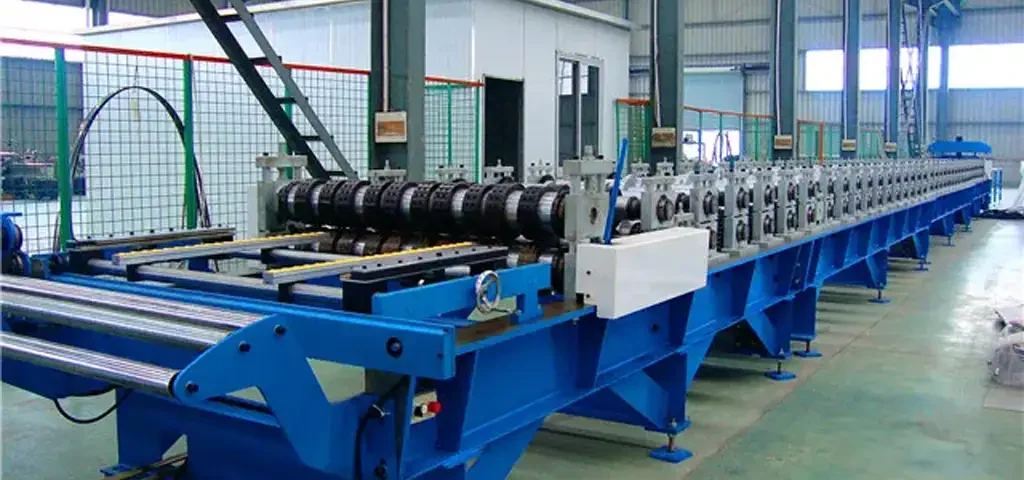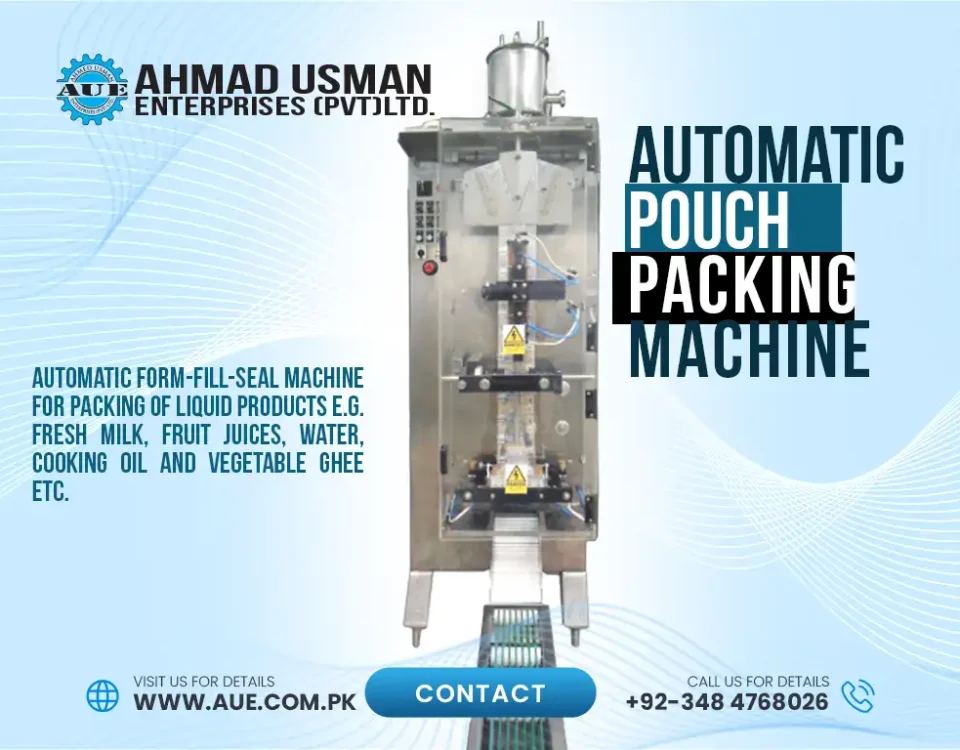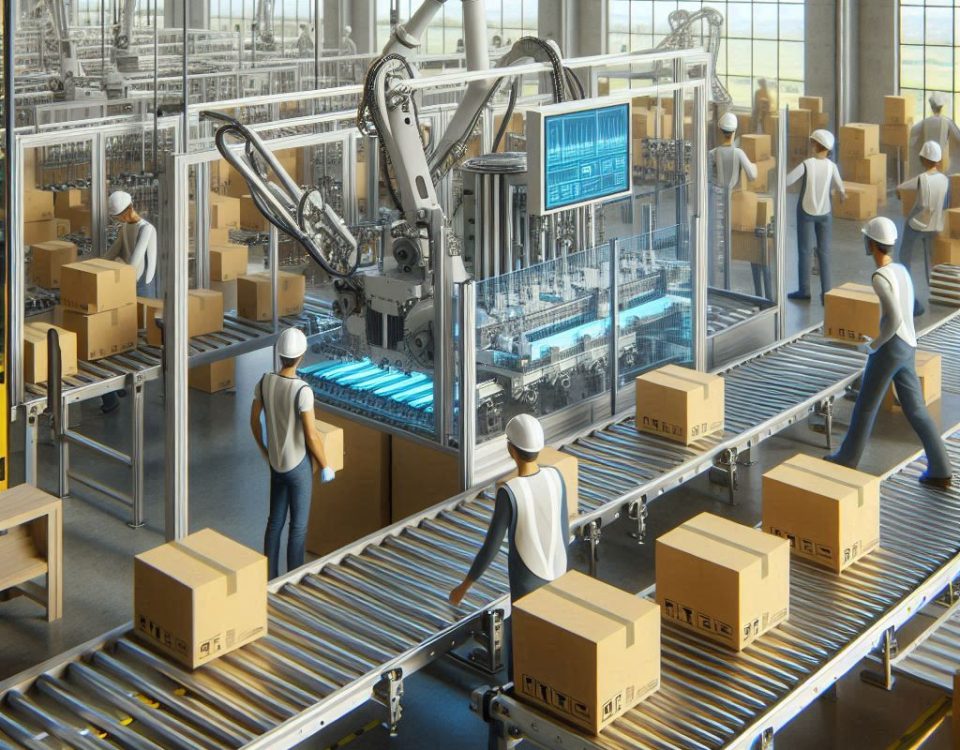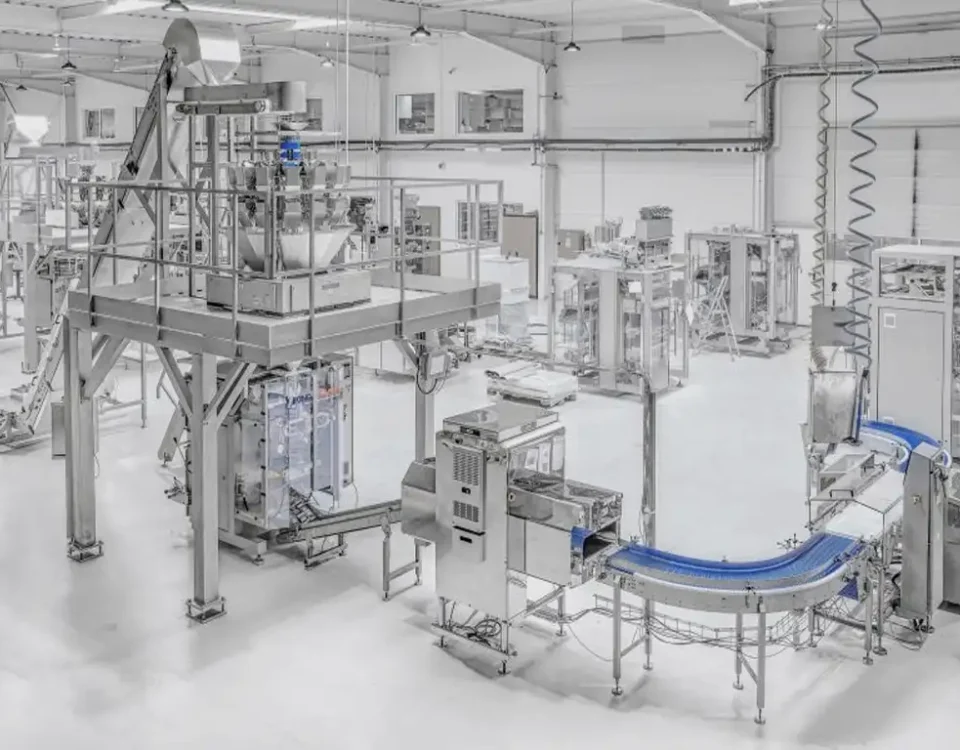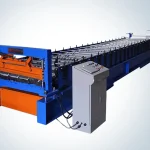
Seamless Cladding Solutions: Roof and Wall Roll Forming Machines
May 21, 2024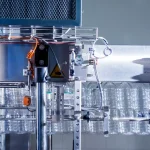
High-Quality Liquid Packing Machine, Business Needs, Efficient Packaging, Liquid Packing Technology
June 3, 2024In the realm of modern construction, floor systems play a critical role in ensuring the structural integrity, safety, and functionality of buildings. Structural metal floor decks, in particular, have become an essential component, offering superior strength, durability, and versatility compared to traditional concrete or wood flooring systems. To meet the ever-increasing demand for these vital components, structural metal floor deck roll forming machines have emerged as a game-changing solution, revolutionizing the manufacturing process and setting new standards for efficiency, precision, and cost-effectiveness.
[Expand on the importance of structural metal floor decks, their advantages over traditional flooring systems, and the need for efficient manufacturing processes. Introduce structural metal floor deck roll forming machines as a solution to streamline production.]
The Roll Forming Process for Structural Metal Floor Decks
Understanding the Roll Forming Technique
Structural metal floor deck roll forming machines utilize a continuous process of rolling and bending to transform flat metal sheets into the desired floor deck profiles. Here’s how it works:
- Material Feeding
- Roll Forming
- Punching and Shearing
- Cut-to-Length
- Finishing and Packaging
Benefits of Using Structural Metal Floor Deck Roll Forming Machines
[Introduce this section by highlighting the advantages of using structural metal floor deck roll forming machines over traditional manufacturing methods.]
- Increased Production Efficiency
- Consistent Quality and Dimensional Accuracy
- Material Cost Savings
- Versatility in Floor Deck Profiles
- Reduced Labor Requirements
- Enhanced Structural Integrity
Using structural metal floor deck roll forming machines offers several significant advantages compared to traditional manufacturing methods. These benefits span across various aspects such as production efficiency, quality, cost, versatility, labor requirements, and structural integrity.
Increased Production Efficiency
Structural metal floor deck roll forming machines significantly boost production efficiency. These machines are designed to handle high-speed production, allowing for continuous operation with minimal downtime. Unlike traditional methods that involve multiple steps and manual interventions, roll forming machines automate the process, streamlining the production line and reducing the time required to produce each unit. This automation leads to faster turnaround times, enabling manufacturers to meet tight deadlines and increase overall throughput.
Consistent Quality and Dimensional Accuracy
One of the key advantages of roll forming machines is their ability to produce consistent, high-quality products with precise dimensional accuracy. Traditional methods often involve manual handling and assembly, which can introduce variability and defects. In contrast, roll forming machines are equipped with advanced controls and sensors that ensure each product meets exact specifications. This consistency is crucial for construction projects that demand uniformity and precision, reducing the risk of errors and rework.
Material Cost Savings
Roll forming machines contribute to material cost savings by optimizing the use of raw materials. The continuous nature of the roll forming process minimizes waste, as the machines can be calibrated to use the exact amount of material needed for each product. This efficiency reduces scrap and offcuts, leading to cost savings. Additionally, the ability to produce custom profiles on-demand eliminates the need for excessive inventory, further lowering material costs.
Versatility in Floor Deck Profiles
The versatility of roll forming machines allows for the production of a wide range of floor deck profiles. These machines can be easily adjusted to create different shapes, sizes, and designs, catering to various architectural and structural requirements. This flexibility is not readily achievable with traditional manufacturing methods, which often require separate tools and setups for each profile. With roll forming machines, manufacturers can quickly switch between profiles, offering customized solutions to meet specific project needs.
Reduced Labor Requirements
Automation through roll forming machines reduces the dependency on manual labor. Traditional manufacturing methods require skilled workers to operate machinery, assemble components, and ensure quality control. Roll forming machines streamline these tasks, minimizing the need for extensive manual intervention. This reduction in labor requirements not only cuts down on labor costs but also mitigates the challenges associated with labor shortages and training new workers.
Enhanced Structural Integrity
Floor decks produced using roll forming machines exhibit enhanced structural integrity. The continuous rolling process creates stronger and more uniform metal sheets, which translate to improved load-bearing capacity and durability. Traditional methods may introduce weak points due to welding or manual assembly, compromising the overall strength of the structure. Roll forming ensures that the floor decks maintain their integrity, contributing to the safety and longevity of the buildings in which they are used.
[Expand on each benefit, providing detailed explanations and real-world examples where applicable.]
Key Features to Look for in Structural Metal Floor Deck Roll Forming Machines
When investing in a structural metal floor deck roll forming machine, it’s crucial to consider several key features to ensure optimal performance, reliability, and efficiency. Here are some critical aspects to evaluate:
Industry Applications and Use Cases
Structural metal floor deck roll forming machines have found widespread applications across various sectors of the construction industry, catering to the diverse needs of commercial, industrial, and infrastructure projects.
[Provide specific examples of industry applications and use cases, highlighting the versatility and adaptability of structural metal floor deck roll forming machines.]
Frequently Asked Questions (FAQs)
- What types of materials can be used in structural metal floor deck roll forming machines?
- How do roll formed floor decks compare to traditional concrete or wood flooring systems in terms of strength and durability?
- Can floor deck roll forming machines produce custom profiles or are they limited to standard sizes?
- What is the typical production speed and capacity of these machines?
- How important is the level of automation in floor deck roll forming machines?
- What safety considerations should be taken into account when operating these machines?
- How much space is typically required to install and operate a floor deck roll forming machine?
- What kind of maintenance and servicing is required for these machines?
- Can floor deck roll forming machines be integrated with other equipment in a production line?
- How does the initial investment and operating costs of these machines compare to traditional manufacturing methods?

